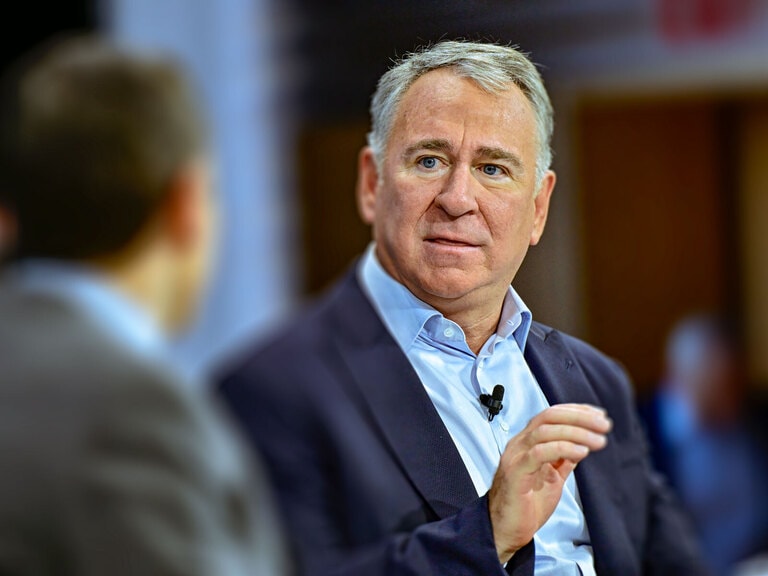Booming demand for technology solutions both during and post-pandemic has been electrifying the iShares US Technology ETF [IYW].
It was boosted by changing societal and economic needs as the COVID-19 pandemic took hold — including technology to aid remote working, communications between separated families, digital media and healthcare — the iShares US Technology ETF powered 19.4% higher from $71.23 at the close on 20 July 2020 to $85.08 at the close on 31 December.
The tech-focused ETF continued surging higher at the start of 2021, hitting $93.10 at the close on 12 February.
However, its performance became more volatile as fears over higher inflation and interest rates knocked high-growth tech stocks.
iShares US Technology ETF dropped to $82.45 at the close on 8 March before recovering 15.2% at the close on 26 April. It then fell again to $86.67 at the close on 12 May before a recent strong performance, which has seen it rise 21.2% to sit at $99.92 at the close on 16 July.
Totally tech
The iShares US Technology ETF, launched on 15 May 2000, seeks to track the investment results of an index composed of US equities in the technology sector. The biggest sector is software and services, at 38.3%.
The fund has a year-to-date total daily return of 17.6%, according to Yahoo Finance, and total assets of $7.81bn.
The iShares US Technology ETF has 159 holdings. Apple [AAPL] has the largest weighting, at 18.97%, Microsoft [MSFT] has is weighted at 17.47%, Google owner Alphabet [GOOGL] at 5.23% and Facebook [FB] 4.35%. Other top holdings include healthcare group Veeva Systems [VEEV] and e-commerce marketplace site Etsy [ETSY].
Shares in Apple rose 60.6% at the close on 23 July 2020 to record highs of $149.15 at the close on 14 July. It sat at $146.39 at the close on 16 July.
17.6%
Year-to-date total daily return of the iShares US Technology ETF
The stock has been boosted by surging demand for its products such as iPhones, while App Store sales, including those aiding remote working, have also done well. Tim Cook, Apple chief executive, said it had “helped users meet this moment in their own lives”.
Microsoft’s shares have surged from 29% in the year to date to close 16 July at $280.75. It has been boosted by demand for its Xbox console, PCs and Azure cloud services for remote working.
Veeva Systems’ shares, meanwhile, increased 15 so far this year to $315.40 at the close on 16 July.
It has been driven by demand from medtech companies looking to speed up the delivery of COVID-19 and cancer treatments to patients.
Technologies enduring appeal
The boom in tech demand is set to continue across most sectors. According to StrategyR, global markets for healthcare IT are set to climb from $201.8bn in 2020 to $484bn in 2026.
The global cloud computing market is tipped to rise at a compound annual growth rate CAGR of 18% from 2019 to 2026, according to Facts and Factors.
Apple will help drive a lot of this as it boosts production rates of its next-generation iPhones from 75 million in 2020 to 90 million this year.
“We see a path to Apple outperforming investor expectations over a longer time horizon,” said JPMorgan analyst Samik Chatterjee. He has an overweight rating on the stock and a $175 price target.
“We see a path to Apple outperforming investor expectations over a longer time horizon” - JPMorgan analyst Samik Chatterjee
Analysts also see potential for a share boost from Apple’s focus on autonomous vehicles and augmented and virtual reality tech as well as the rollout of 5G technology.
But there are challenges to the iShares US Technology ETF, such as the impact high-interest rates and inflation could have on tech share prices going forward. A re-opening of society may also see more people return to physical stores than use e-commerce and need fewer remote working solutions as they go back to the office.
Hard-hit SMEs faced with repaying back government loans may also see their tech budgets stretched and the supply chain, as seen with the recent squeeze in semiconductors, could be stressed with more demand.
Jim Cramer of CNBC, however, sees inflation as a positive: “Hyper-growth tech stocks are actually what works best during a slowdown.”
“Hyper-growth tech stocks are actually what works best during a slowdown” - Jim Cramer
High raw material and packaging costs, he argues, don’t have as much impact on big tech operations as other sectors.
Sweta Killa, writing for Zacks Equity Research, also remains bullish on the fund. “Lower interest rates for at least more than a year will continue to boost demand for technology products and services, fuelling growth in the sector,” Sweta wrote. “There is definitely some promise for those who want to ride this surging ETF a little further.”
Continue reading for FREE
- Includes free newsletter updates, unsubscribe anytime. Privacy policy





